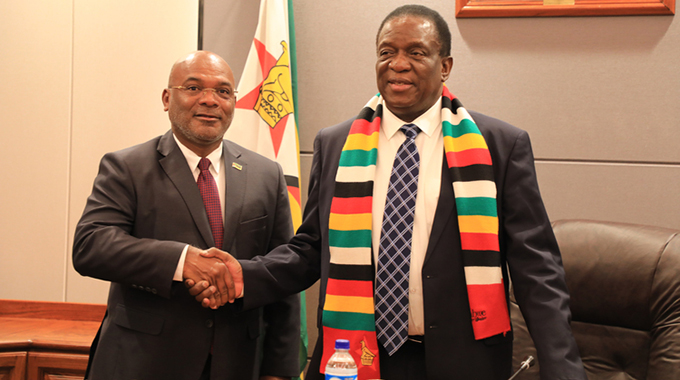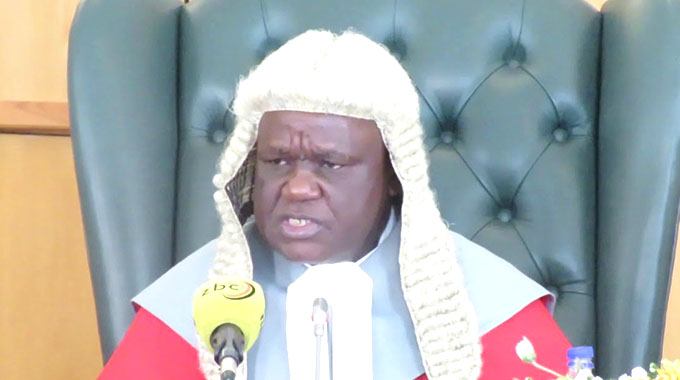Zim-Moza mull fuel pipeline expansion

Joseph Madzimure Senior Reporter
Zimbabwe intends to pump more fuel from Beira to Feruka near Mutare and then to Msasa in Harare, which requires the upgrading of the pipelines. How this can be done was the centre of discussions yesterday between President Mnangagwa and a special envoy from his Mozambican counterpart President Filipe Nyusi. The special envoy, Mr Carlos Mesquita, who is Mozambique’s Minister of Transport and Communication, was following up on recent meetings between President Mnangagwa and President Nyusi in Russia and in Botswana on greater cooperation in the energy sector.
Speaking after the meeting at President Mnangagwa’s Munhumutapa offices, Mr Mesquita said the talks centred on how the volume of fuel pumped to Zimbabwe could be raised from 1,6 million cubic metres a year to two million cubic metres.
“I was instructed by President Nyusi to come over and discuss further with the Government of Zimbabwe on the way forward,” said Mr Mesquita.
“I held a meeting with President Mnangagwa to discuss issues related to the transportation of liquid fuel for Zimbabwe through the pipeline from Beira to Feruka and also to Msasa in Harare.”
Mr Mesquita said the two heads of State initially discussed the issue on the sidelines of the Russia-Africa Summit in Sochi, Russia, before holding further talks when they attended last week’s inauguration of Botswana President Mokgweetsi Masisi.
“The issue of the pipeline is a lifeline for Zimbabwe and therefore both Heads of State are really interested in ensuring that the logistics of transport of fuel to Zimbabwe go smoothly,” he said.
“So far, there are no big issues to deal with, but definitely we have to think about the future because the pipeline has the capacity of two million cubic metres a year and the current volume to Zimbabwe is 1,6 million cubic metres.
“The difference of 400 000 cubic metres then keeps us in a position to think as quickly as possible how we can increase further the capacity of the pipeline.”
More fuel, he said, would be ferried through rail and road transport to meet Zimbabwe’s needs. Zimbabwean ministers were expected to visit Mozambique next week to finalise the negotiations.
Mr Mesquita said the two governments were negotiating with Companhiado De Pipeline Mozambique-Zimbabwe (CPMZ) which transports fuel from Beira to Feruka to expand the trans-Mozambique pipeline.
Mozambique operates the CPMZ pipeline from Beira to Feruka in Mutare, while the National Oil and Infrastructure Company (NOIC) operates the Feruka Pipeline from Mutare to Msasa in Harare.
The CPMZ-Feruka pipeline transports 90 percent of fuel into Zimbabwe with the balance imported overland from South Africa and Mozambique by road.
Zimbabwe has plans for a second pair of pipelines from Beira to Harare in line with the vision to create a regional fuel distribution hub.
Zimbabwe has also discussed plans with Botswana to extend the pipeline from Msasa in Harare to Francistown to reduce fuel transport costs for the northern part of that country, which now gets all fuel by road from South Africa.
Finance and Economic Development Minister Professor Mthuli Ncube last year said a world-class regional fuel dry port at the Mabvuku loading gantry and Msasa Depot would ease pressure on the Government to source and allocate foreign currency for fuel imports.








Comments